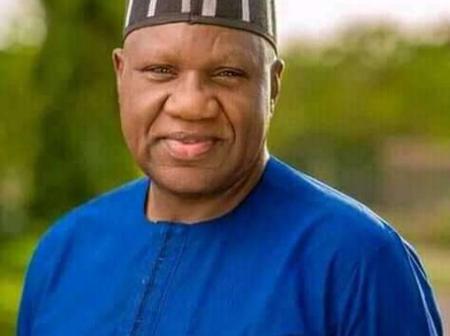By Prof. Terhemba Shija
I got up early this morning and while browsing the social media, I stumbled on the video reel of Jimmy Cliff’s classic hit, “Wonderful World, Beautiful People.” It brightened my mood in a fond nostalgic way. Nobody in my generation could overlook that sonorous voice with a spice of rich intellectual diction and a maze of scintillating instrumentation.
I reflected on it for a while with the view to understanding its deeper meaning beyond its romantic sense. Is our world still as wonderful as Jimmy Cliff had perceived in 1969 when the song was released? Are people still as beautiful as they had appeared to the reggae star 55 years ago? Or are there some improvements or some depreciation on either our world or our good selves on account of the steady growth of modernization?
The sensation of wonder is elicited upon discovery. It takes a poetic mind to do the discovery. Otherwise, the perception of the environment is always blunted by familiarity or sometimes distracted by reiteration of obvious ideas. Most people therefore don’t seem to know how wonderful their world could be. We undermine our familiar country and desire the exotic environment of distant countries. We forget to realise that we have our own unique sense of wonder, but seek to discover “America Wanda!”
Truth must be told, our world posseses untold wonders, even if they are not very positive. It is as bountifully fruitful as it is also fiercely unpredictable. While the scientists seek to discover the laws or principles that govern nature, we in the arts seek to imaginatively tease out the sensation of wonder that envelops it. With a poetic license we look through the paradoxes and ironies of our otherwise, commonplace environment to pull out the wonders that we say, “shall never end.”
The Internet is a fertile ground where Nigerian wonders germinate. We read them without knowing how uniquely wonderful the Nigerian story is. It is, of course, a normal story to hear that a governor stole billions of public funds. But it becomes a wonder when action is taken to bring bring such a governor to book. It was normal thing when a certain governor was accused a few weeks ago of stealing 82 billion Naira and other public servants, and senior lawyers were falling over one another to defend him. It was also normal in the Nigerian context for a peasant thief accused of stealing a telephone set to have a motley mob of his kind falling over one another to deliver justice by lynching.
What is strange and can elicit anybody’s sense of wonder is how members of the clergy form bands of prayer warriors to pray to God to ward off the EFCC and traditional rulers as custodians of values, constitute a strong lobby group to seek for his release of the thieving governor. The paradox of the soul of the smaller thief being instantaneously despatched to hraven to face his maker without a scintila of chance to repent from his sins should also constitute a sense of wonder to those viewing from outside Nigeria.
These are wonderful times for us citizens and those watching us. Our country gets richer selling its oil and gas, solid minerals and other goods to other countries, but its citizens get poorer and deprived of the basic things of life. This debilitating wonder becomes stark with the irony that Nigeria leads all black nations on earth in different professions and human resources in the Western diaspora but is unable to provide credible leadership to manage itself at home.
As for the idea of a beautiful people mentioned by Jimmy Cliff, I hesitate to embrace the phrase wholesale. Beauty is a basic sentiment that is best experienced by an individual beholder. In this regard, I see many beautiful faces, but I rate my wife best. I question the wholesomeness of the beauty that cannot manage their affairs properly. I believe Jimmy Cliff was envisaging an idyllic universe populated by men and women of wholesome looks and character. I would rather Cliff describes Nigeria as wonderful world, festive people.
We like celebrating ourselves, while undermining the greatness of our country. The last time most of us celebrated the positive wonders of our country was when the Super Eagles qualified for the semifinal of the African Cup of Nations earlier this year. Then the wonderful sensation of local boys like Osimhen, Lookman, Musa or Taiwo, rising to become superstars was palpable.
Nigerians have an exuberant way of celebrating themselves. Their sense of the sartorial is fanciful and loud. Their pop songs have conquered the world. I’m told the common identity of an average Nigerian abroad is to conduct himself in a celebratory manner, loud and boisterous.
Creativity is not lacking at moments we celebrate. At first, I thought festivities were only meant for big occasions like New years, Christmases, sallahs, birthdays, promotions, burials, church rituals or any of the world acclaimed holidays. But we now multiplied our days of festivities. We send celebrative text messages commemorating happy new months, happy new weeks, happy Sundays, happy week ends, happy new weeks, and so on. All these are avenues for consumption and not production. We send messages of goodwill to friends and well wishers and occasionally roll out drums to celebrate.
Although, Nigeria may at present be caught on the wrong side of the statistics on the ease of doing business or GDP per capital, or insecurity or unemployment, or provision of infrastructure, our compatriots are hardly ever caught refusing an invitation to celebrate life.
There’s resilience and positive energy imbued in every Nigerian, and these come alive anytime festive drums roll. The world knows that Nigerians live by faith and not by sight. They are ever joyful regardless of the harsh economic conditions. They have a way of escaping into the cocoon of festivities even when duty calls to change leadership. There’s no dull moment in Nigeria. We dance pachanga and woju, we also gyrate to the tunes of buga and baka, and cruise to the rhythm of azonto and itigi.
Nobel laureate, Professor Wole Soyinka had overshot this point when he published his third and by far, his most voluminous novel about Nigeria, titled “Chronicles of the Happiest People on Earth” I dare say, Oga Prof, Nigerians are definitely not a happy people. They only dance, smile, and drink to belie their monumental unhappiness.
Terhemba Shija is a Nigerian academic, poet, novelist, critic, and politician sent in this contribution from Abuja, Nigeria.















